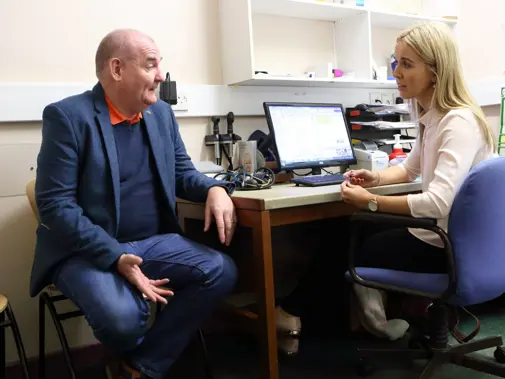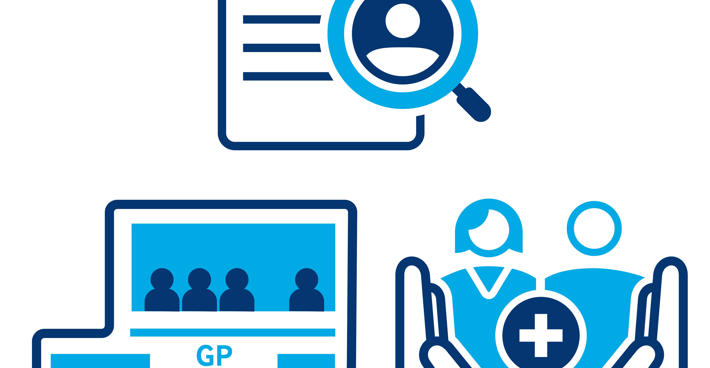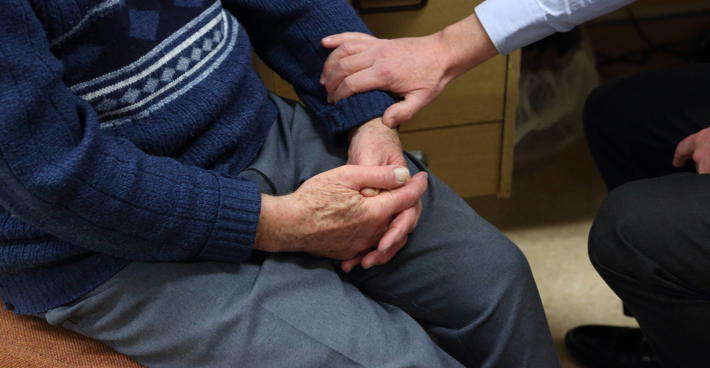Impact of online consultation changes - survey results
A BMA survey of more than 1,300 GP practices in England has exposed significant concerns about the Government’s new online requirements introduced on 1 October 2025. 73% of responding practices said they had to change how they work because of the contract change, and many reported negative effects on both patients and staff.
Key findings include:
-
Reduced patient access:
42% of these practices had to reduce face-to-face appointments – reducing the time patients spend with their family doctor -
Pressure on staff
45% of these practices said they’ve had to redeploy staff to manage the changes, while 74% reported an increase in workload, 68% reported a rise in stress and 54% said there was an increase in working hours. -
Negative impact on care:
Over half (55%) of these practices had seen a negative impact on patient care. One practice explained that, “when practices were able to close their online platforms earlier in the day, any patient contacting the practice in the later afternoon would need to walk in or telephone the practice. Since, in that scenario, they are speaking to an actual person (two-way conversation), it is much more likely that urgent matters are picked up immediately and dealt with straight away.” -
Safety concerns:
70% of these practices received medically inappropriate online requests, including urgent requests coming through as routine/non-urgent. A practice shared that “patients using this as an admin query when they should be calling 999 for a medical emergency e.g. hypotensive, tachycardic and breathless!” Another practice told us that they are “Almost daily getting urgent requests through the online portal despite clear messaging that it should not be used for such and to telephone for on the day access instead.” This presents a significant risk to patient safety.
Overall, the survey results show that that the new contract changes are placing additional strain on already overstretched GP practice teams and risking patient harm. GPC England has repeatedly said that patient access must be clinically safe. To ensure that happens, practices must retain the ability to manage their consultation systems safely, including the ability to turn them off when demand exceeds safe capacity.
The BMA’s current dispute with the Government includes this issue, after the Government failed to meaningfully engage with GPC England to deliver the necessary safeguards prior to 1 October 2025, as per GPC England’s conditions to agreeing the terms of the 2025/26 contract.
Relevant safeguards could include:
-
Engaging with IT software providers to find IT solutions that work for patients and practitioners.
-
Flexibilities in allowing practices to suspend online triage when they become overwhelmed on a working day and safe care is threatened, whilst telephones stay on and surgery reception desks remain open
-
Increasing practice resources and staffing capacity to manage online requests and queries beyond the end of the currently contracted core hours of 8am-6.30pm.
See the press release for more information.
Survey metrics
- Total unique responses: 1,341 (22% of practices in England)
- Total registered patients represented by responding practices: 13,988,827 (22% of registered patients in England)
Regional Breakdown:
| Region | Number of practices | Survey responses | Response rate (%) |
|---|---|---|---|
| East of England | 632 | 178 | 28% |
| London | 1154 | 147 | 13% |
| Midlands | 1248 | 329 | 26% |
| North East and Yorkshire | 932 | 234 | 25% |
| North West | 943 | 154 | 16% |
| South East | 778 | 142 | 18% |
| South West | 518 | 155 | 30% |
Video: GPs express their concerns about the Government’s new online access requirements introduced on 1 October 2025
Entering dispute over regulatory changes
Our concerns centre on the contract changes that came into effect on 1 October. Specifically, those changes that now compel practices to make online consultations available to patients throughout core hours (08:00 – 18:30), as well as switching on access to update record via GP Connect for other NHS providers. The necessary safeguards, which DHSC and NHSE committed to working with the BMA GP Committee (England) and others to implementing before bringing in the contractual changes, have still not been put in place.
On behalf of practices in England, we therefore dispute that these contractual changes are safe for patients and staff. The GPCE chair has written to the Secretary of State for Health and Social Care to confirm this.
To end this dispute, we are calling on the Government, by 1 November 2025, to:
- request NHSE urgently provides written assurance that no practice will risk a breach notice should the practice be forced to divert urgent same-day patient contacts to telephone and walk-in due to overwhelm of patient need exceeding available clinical capacity
- request NHSE urgently meets with GPCE and online providers to secure solutions for their platforms which preclude the submission of urgent online consultation requests
- request NHSE urgently work with the JGPITC to reach rapid solutions to resolve outstanding concerns as articulated in their written statement on GP Connect, and provide practices with indemnity cover for data breaches by other NHS and third-party providers
- demonstrably focus on GMS contract renewal, with transparency regarding funding envelopes for GMS 2026/27; for new GMS; and for novel contracts within the 10 Year Health Plan, swiftly confirming the roadmap regarding timelines for such renewal and investment.
Brief timeline for the dispute
NHSE/DHSC initially proposes a requirement for practices to have online consultation tools switched on during core hours.
Meetings with NHSE/DHSC firm up proposal to amend the GMS Contract to explicitly require that online consultation tools are available for patients to make administrative and clinical requests at least during core hours. This would not mandate that GPs address every case immediately. A stated red line for GPCE being the requirement that patients making contact within core hours, would be triaged so that patients understand how their response will be dealt with.
GPCE concerns were also shared with the Minister of State for Care.
Further meetings with NHSE/DHSC at which the red line for the profession because of concerns around capacity and safety were restated.
6 February
GPCE set out its concerns in a letter to NHSE/DHSC.
27 February
Consultation closes and the package is recommended to GPC England on 27 February.
28 February
NHSE/DHSC writes to profession on 28 February confirming that 1 October 2025 contract changes will be subject to necessary safeguards in place to avoid urgent clinical requests erroneously submitted online.
1 May
GPCE chair and deputy chair (with IT portfolio) write to NHSE and DHSC to confirm the potential drastic impact of the administrative, information governance and clinical liability burden placed on practices and, that experience had shown it takes times to implement policy like the ones related to online consultation and GP Connect. Suggestion of recurring meetings every two weeks.
27 July
Letter sent to SoS flagging ongoing substantial clinical governance and data protection concerns around online consultation requests and GP Connect (Update Record) by other NHS providers.
22 July
Letter sent to Minister of State for Care Stephen Kinnock MP, thanking him for his words of reassurance around expectations for online consultations from 1 October 2025. He did not want practices to be overloaded and did not expect every practice in England to do exactly the same thing at exactly the same time. In this letter relating to the future of general practice, we requested confirmation of future funding envelopes, a roadmap for GMS contract renewal, and reforms to reimbursement schemes. We also called for extended indemnity cover and a clear government commitment to GP leadership in neighbourhood-level care delivery.
28 July
Changes to online access and GP connect software. We wrote to Helen Vernon, Chief Executive NHS Resolution, regarding changes to online access and GP connect software and highlighting risks of unlimited online requests and its pressure on an overstretched GP workforce. We asked NHS Resolution to underwrite liability for patient harm and data protection breaches from nationally mandated systems to better protect GPs adopting new technologies.
30 July:
In our letter to Karin Smyth MP, the minister responsible for land and estates, we raised the ongoing issues over service charges levied by NHS Property Services (NHSPS) and Community Health Partnerships (CHP). We have requested a meeting to explore constructive solutions.
8 September:
GPCE wrote to NHS England's National Director for Primary Care and Community Services, Amanda Doyle, raising ongoing concerns around missing necessary safeguards and setting out outstanding requirements prior to GPCE’s meeting on 18th September 2025.
15 September:
Joint GP IT Committee position statement on GP Connect: Update Record. Following the 3 September meeting, the Joint GP IT Committee issued a statement on the current state of GP Connect: Update Record, shared with NHS England in light of plans to make this functionality a requirement.
17 September:
GPCE wrote to Minister of State for Care demanding safeguards be implemented before the changes to online consultations were imposed.
19 September:
Further letter to Minister of State for Care and SoS seeking a deferral of the contractual changes.
Minister of State for Care responds to GPCE chair's letters confirming that the 1 October contract changes regarding online consultation requests do not require an immediate response. Practices instead retain discretion to triage and prioritise based on clinical needs as they do for telephone and walk in queries.
1 October:
GPCE wrote to the Secretary of State for Health and Social Care and the Minister of State for Care confirming that GPC England had now entered into formal dispute with the government.
29 October:
GPCE wrote to the Secretary of State for Health and Social Care, Wes Streeting, to reaffirm the GP profession’s expectations for the 2025/26 GMS contract negotiations, highlighting that the Government failed to meet the conditions agreed upon, leading the committee to enter into dispute on 1 October 2025. The letter outlined key issues, such as the failure to implement necessary safeguards, the lack of progress on a new contract, funding increases, and workforce support, stressing the need for urgent action to resolve the dispute.
4 November:
GPCE writes to DHSC and NHSE officials regarding necessary safeguards for online consultation tools and GP Connect. NHSE, DHSE and Government responded on 6 November. Their response failed to answer GPCE’s key questions or recognise that the quote from the original closing letter illustrated the contemporaneous discussions around the end of the contract deal: mutually agreed safety nets to online consulting. In addition, further commitments to work with JGPITC on outstanding safety issues relating to GP Connect Update Record write access were also not fulfilled.
Whilst the response quotes an email dated 24 February, (informal emails have not historically been treated as formal correspondence confirming agreements by any negotiating party), the final closing letter of 10 February sets out “our overarching and final position” followed by NHSE’s 18 February letter titled “close of consultation”.
20 November:
GPCE wrote to NHS England's National Director for Primary Care and Community Services, Amanda Doyle, and to the DHSC’s Director of Primary and Community Health Care, Ed Scully, clarifying that a previous letter did not intend to misrepresent the position of government, DHSC and NHS. GPCE reiterated their unanswered question on whether NHS England has made any attempt to implement necessary safeguards. GPCE also highlighted patient safety issues raised by a survey of 1,000 GP practices and requested a meeting to discuss key issues, including the neighbourhood model, GP contract reform, and the Carr-Hill formula review
GPCE wrote to the Secretary of State for Health and Social Care expressing their disappointment over the withdrawal of a meeting invitation and the cancellation of all subsequent meetings. GPCE raised concerns about unanswered questions on necessary safeguards and highlighted patient safety issues identified in the BMA’s survey on changes to online consultations. GPCE requested to meet to discuss these key issues, the renegotiation of a new GMS contract and the future of general practice.
Compliance with contractual changes
From 1 October 2025, to ensure compliance with new contractual requirements in the 25/26 contract agreement in March 2025, and to avoid the risk of receiving remedial or breach notices from ICBs, practices must:
- have an online consultation tool, which is available to registered patients throughout core hours (8am – 6.30pm), to allow them to make non urgent / routine appointments requests, medication queries and administrative requests and
- that GP Connect (Update Record) functionality is enabled.
These contract changes only apply to practices that have agreed to the changes or received a notice from their ICB notifying them that the changes will automatically apply to their GMS/PMS contract. Notices from ICB must give at least 14 days’, and the variation(s) occur, regardless of whether a practice signs the notice or not, after the notice period.
New guidance
- Regulatory changes for 2025/26: This guidance explains the 2025/26 regulatory changes and the patient contact clauses from 2023/24. We provide advice on how to remain compliant in relation to the three modes of access: walk-ins, telephone contact, and online consultations.
- Managing patient care safely from 1 October: This guidance provides practical advice on managing patient care safely, including workflow and triage review; considerations on the waiting lists for routine care; and reminders from the BMA safe working guidance handbook.
- Your practice charter
- Setting up online consultations and appointments
- GP Connect Update Record Summary
- Waiting lists in General Practice
- Choosing an online GP consultation platform
- Guidance on demand and capacity
- FAQs for 1 October 2025 online consultations
New resources
- Template Letter from GP practices to ICBs regarding 1st October changes to contract on online consultations
- GP online consultations poster (PDF)
- GP online consultations poster (word version)
- Downloadable graphics: graphic 1, graphic 2, graphic 3
- BMA branded template for GP notification to ICB of patient safety concerns related to online access







